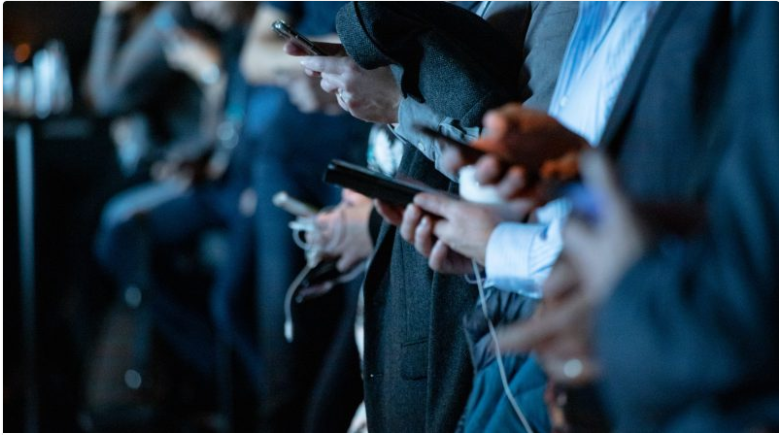Major Political/Social Movements Facilitated Through Social Media
Major
Political/Social Movements and Social Media
Social
media platforms are significant in mobilizing people to participate in civic
rights movements. Some Americans believe that the invention of social media
helps create awareness, while others believe that it causes more damage than
profit. According to findings by the Pew Research Center in 2020 on U.S.
adults, conducted between July 13 and 19, 2018, 8 out of 10 respondents agree
that social media platforms are either very (31%) or moderately (49%) useful
for raising public awareness about political or social concerns. About 77% believe
that social media sites have been useful for launching effective social
movements. This article will examine the major social and political movements
facilitated through social media in America over the past decade.
1.
Black Lives Matter Movements.
In 2013, in
response to George Zimmerman's acquittal for the murder of Trayvon Martin,
three black women activists developed a hashtag on social media to mobilize
people into protesting against racial injustice. Without much struggle, people
responded quickly and joined the movement to protest black victims of crime and
institutional prejudice. In 2014, the BLM movement resurfaced after the police
killings of Eric Garner in Staten Island and Michael Brown in Ferguson. The
movement resulted in political reformation; even the stop-n-frisk program the
New York City Mayor implemented, Michael Bloomberg, denounced and supported the
ongoing black lives matter movement. In 2020, after the murder of George Floyd,
the Black Lives Matter movement received international support from all over
the world. The widespread effort resulted from social media, which disseminated
the video of the incident within the shortest time possible. Celebrities such
as Keke Palmer and Michael B. Jordan, among other people, joined the
mobilization process and encouraged the weak to join the fight for police
reforms. Social media features that allow people to use the hashtag #blacklivesmatter
made it easy to mobilize people faster and ensure place reform. As a result, several
states have enacted moderate changes, like bans on chokeholds and stricter
regulations for using body cams.
2. Women’s March and #MeToo
The
day following Trump's inauguration (January 21, 2017), the greatest protest in
U.S. history happened (four million people in cities around the country). On
that day, pink pussy hats debuted, and they have since come to represent
women's liberation. In her book American Resistance, Dana Fisher, a
sociologist, claims that among the women who participated in the Women's March,
58% followed up with a government official, and 40% went to a congressional
town hall. Due to this momentum, the 2018 midterm elections saw a surge in
female participation, especially in the suburbs. The October 2017 public
revelation of sexual misconduct charges against Harvey Weinstein was a turning
point for the #MeToocampaign. Viral in nature, it quickly reached the streets,
courts, and political arenas, ultimately leading to the dismissal or retirement
of prominent personalities in politics, entertainment, academia, healthcare,
and more. Later, it made its way into the workplaces of everyday women, where
it posed a direct challenge to the predatory actions of male managers and
supervisors. The modern American workplace will change significantly.
On
February 14, 2018, an individual armed with a semi-automatic firearm
perpetrated an act of violence, resulting in the deaths of 17 individuals and
the injury of 17 others at Marjory Stoneman Douglas High School in Parkland,
Florida. Since the tragic incident at Sandy Hook Elementary School in
Connecticut in 2012, 2,178 mass shootings have occurred, resulting in the loss
of 2,458 lives and causing injuries to 9,119 individuals. Following their
direct exposure to gun violence, Marjory Stoneman Douglas High School students decided
to respond proactively. An estimated 1.2-2 million individuals attended the
inaugural March for Our Lives demonstration in Washington, DC, approximately
one month following the occurrence of the homicides. Additionally, several
comparable rallies took place in various locations throughout the nation. The
organization known as Never Again MSD was established by a group of students
hailing from Parkland, Florida. These students dedicated their time during the
summer and fall seasons to embark on a nationwide tour called the "Road to
Change."
The
primary objective of this tour was to inspire individuals, particularly young
individuals, to actively participate in the electoral process by registering to
vote in the imminent November 2018 midterm elections. The proportion of young
voters had a substantial surge in 2016, particularly in Florida, where 37
percent of eligible voters aged 18 to 29 participated in the electoral process,
marking a notable rise from the 22 percent recorded during the 2014 midterm
elections. Lucy McBath, a recipient of an unexpected victory, experienced the
tragic loss of her son Jordan, who was fatally shot by an individual of
Caucasian descent at a Florida gas station following a dispute regarding noise
disturbance. In the Georgia Sixth Congressional District, situated in the
suburban areas of Atlanta, McBath emerged victorious in the electoral contest
against Newt Gingrich, securing the congressional seat. Following the February
shooting incident at her high school, she deliberately pursued a candidacy for
a seat in the United States Congress.
Sources
Auixer,
Americans think social media can help build
movements but can also be distracting.Pew
Research Centre. Retrieved from https://www.pewresearch.org/short-reads/2020/09/09/americans-think-social-media-can-help-build-movements-but-can-also-be-a-distraction/
Heaney, M. T. (2020). The George Floyd protests generated
more media coverage than any protest in 50 years. The Washington Post.
New
York Times. (2018). March for Our Lives. Retrieved from https://www.nytimes.com/2018/03/24/us/march-for-our-lives.html







Comments
Post a Comment